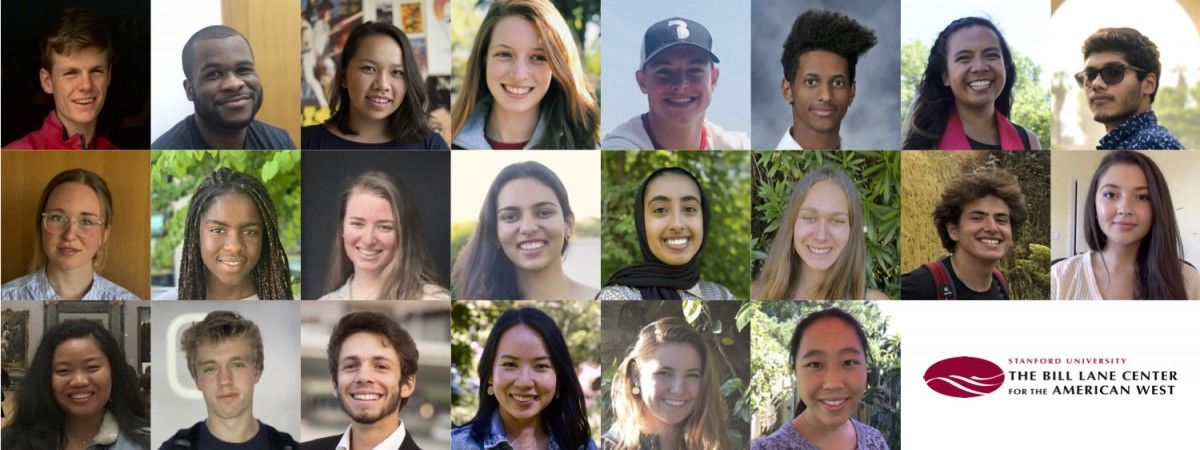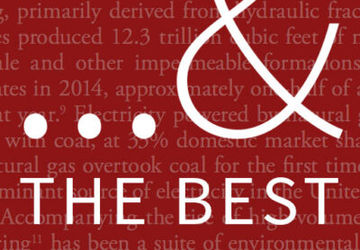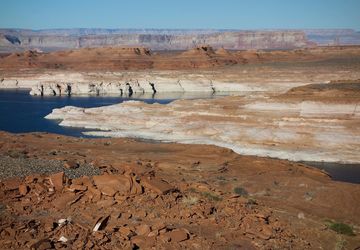
Twenty-two student research projects explore major health and environmental challenges in the American West
Known on campus for the engaging, policy-oriented research opportunities it provides for students, the Bill Lane Center is proud to currently support 22 summer research assistants, all of whom are exploring some of the real-world challenges American Western communities face. While coronavirus restrictions prohibit students from physically working on campus at the moment, Lane Center RAs are busy at home, digging into student-initiated, faculty-initiated, or pre-identified Lane Center projects for up to 40 hours each week.
These projects fall into four broad categories:
- COVID-19
- Environmental regulation
- Wildfire
- Sustainability
Below, read more about our students’ ambitious research, and the ways in which it tackles some of the most urgent health and environmental concerns impacting the American West today.
COVID-19 Research

Given the gravity of the COVID-19 pandemic and its unprecedented impact on individuals and communities across the world, many Lane Center students are eager to contribute to the growing body of research on the virus by investigating the toll it is taking on the American Western region in particular. Their projects reflect a keen interest in improving crisis-response in California and the West, as well as a deep desire to achieve equity for vulnerable populations who are frequently marginalized or neglected.
As tribal communities in the West have been especially hard-hit by COVID-19, research led by Hannah Kelley and Aja Two Crows will look at the Native American response to the pandemic. How have Native People accessed care during the health crisis, and what impact has it had on their physical, mental and spiritual well-being? The team of students will be asking these questions both on the reservation and in more urban areas, creating a podcast along the way that illuminates the diverse experiences of Native People. Contextualizing the current suffering of this population against a backdrop of historical mistreatment by the U.S. government, the students also hope to highlight Native Americans' enduring strength and resilience in the face of a major health crisis. They have "weathered epidemics before," the researchers remind us, citing how vital it is to “uplift Native voices and listen to those most unheard in society."
We are dedicated to showing the immense diversity of Natives while giving credence to their grit and knowledge at a time when it is especially important to remember that Native People have weathered epidemics before. Amongst all the suffering of Native People caused by the United States, it is important and vital to uplift Native voices and listen to those most unheard in society.
Recent Centers for Disease Control demographic data suggests that the Latinx population is also experiencing greater rates of COVID-19 infection than other groups. Research by student Lila Mack aims to identify strategies for improving the ability of local governments and non-governmental organizations (NGOs) to serve Latinx communities in California during environmental and health crises like wildfire and COVID-19. Mack will also look into the potential benefits and feasibility of creating a knowledge-sharing platform for local leaders and NGO staff working with low-income Latinx communities. “Such a system would help avoid duplication of effort when developing crisis-response strategies by allowing NGOs and governments from different California counties” to share best practices, Mack explains.
By taking a closer look at ventilation systems in San Jose schools, student researcher Jessica de la Paz wants to better understand the public health implications of re-opening schools during the COVID-19 pandemic, paying "special attention to the possible disparities between high- and low-income neighborhoods and districts, in addition to majority ethnic communities.” Given the airborne nature of the virus, de la Paz sees poor ventilation in classrooms as a pressing problem that exposes societal inequities. She wants to contribute solutions, providing schools with best practices for limiting transmission and achieving healthy air quality for all students.
Leila Braganza and Sofia Monroy will research COVID-19 from another angle, exploring emergency management of the pandemic across the United States. Similarly, research assistants Sophia Boyd-Fliegel and Hannah Kunzman will examine COVID-19 crisis response, though they will focus on measuring state capacity in California. Through their work, they hope to identify the factors that mitigate health and social harm, and demonstrate how robust public health practices are worth the long-term investment. Samual Baucom also takes up COVID-19 response in California, specifically as it applies to homelessness. He’ll study Project Roomkey, the nation’s first attempt to house 15,000 of California's homeless in empty hotel rooms, a statewide effort to curb the spread of this disease .
Under the mentorship of Lane Center Writer-in-Residence Felicity Barringer, Francisco Nodarse has embarked on a project that will analyze local reactions to top-down public health directives during the COVID-19 crisis. Do communities in the West trust their leaders? Taking a cross-section of data from the rural West, Nodarse hopes to understand the effect of coronavirus on attitudes toward local, state, and federal governance. “Felicity and I have identified a set of counties that are representative of the West at large — each with different driving economic activities, ethnic compositions, and political affiliations — in order to isolate important trends and relationships between the nation’s response to the current health crisis and the everyday realities of Americans in communities across the West,” he writes.
Taken together, these projects represent the vast scope of our students' interests and talents, and more importantly, their ability to apply their skills and knowledge to complex, real-world problems. As the novel coronavirus continues to spread throughout the United States, we look forward to following the researchers' work and are eager to learn from and share their findings.
Environmental Regulation Research

Known for its striking desert and mountain landscapes, its grassland ranches, public lands and national parks, much of the American West's regional identity can be defined by its natural geographic features. With "the great outdoors" playing such a central role in the daily lives of Westerners, much of the work we engage in at the Bill Lane Center involves safeguarding the air, land and water of the West with sound governance and policy.
Three student projects currently focus on environmental regulation. After conducting research earlier this year on Environmental Protection Agency (EPA) violations on a national scale, John Coyle and Abraham Rhyzik have narrowed their scope this summer, homing in on breaches of environmental law at California facilities. The research team will analyze spatial patterns in violations, identifying "hot spots" in the state where the rate of EPA statute infraction is higher. Their goal is to explore whether or not there is a relationship between demographics and noncompliance with environmental law. As environmental regulation helps protect our air and water quality, meeting EPA standards is inextricably linked to Californians' health and well-being.
The second project in this category looks at variation in air quality across California. Though the state has a national reputation as a steward of environmental causes, it is home to nearly half of all counties in the country that are out of compliance with air quality standards. Cade Cannedy, in a thesis that recently earned him a Firestone Medal for excellence in undergraduate research, initially asked why the regulatory system has not improved air quality uniformly across the state. While the Bay Area has seen significant progress, for example, the predominantly agricultural San Joaquin Valley has seen very little. "Through an extensive background analysis of the local elected officials responsible for air regulation, I was able to find an association between the prevalence of elected officials affiliated with polluting sectors of the economy and diminished progress in improving air. In other words, in places that have seen little air quality progress, there are tangible ties between regulators and polluting industries in the area. In the San Joaquin Valley, whose air has seen the least progress in the state, a majority of regulatory officials had demonstrable ties to the industries they were ostensibly tasked with regulating," Cannedy writes of his findings.
In the San Joaquin Valley, whose air has seen the least progress in the state, a majority of regulatory officials had demonstrable ties to the industries they were ostensibly tasked with regulating.
In the same vein, Ayush Pandit is also exploring the relationship between government policy, special interest groups, and overall impacts on air quality in California. Specifically, Pandit will analyze data from the California Air Resources Board (CARB) to understand how policies set by CARB correlate with actual California air quality. His research project, subtitled "Analysis of California Air Resources Board Interest Groups and Actions," aims to "help us understand ways to improve the process around air quality regulation in California," while giving us insight into "the complex interactions between interest groups and policymakers...interactions that form the foundation of policy decision making in American regulatory systems."
Wildfire Research

Wildfire is a critical topic in California and the West, where fire seasons start earlier, last longer, and burn more acreage than they have in the past. The Bill Lane Center is dedicated to producing scholarship, programs and coursework that support the region's wildfire mitigation and adaptation efforts. Students, faculty and community partners work side by side to confront these grave environmental challenges together.
Two students are pursuing research with the Lane Center this summer focused on wildland fire. Devin Hagan will focus on improving vegetation management practices on rangelands to reduce the risk of wildfire in Santa Clara County. He'll also explore the development of solar energy on rangelands. In an attempt to combat the risk of wildfire in the West, "past practices have suppressed fires," only to result in "large vegetation buildup," Hagan writes. These vegetative fuels then intensify the threat. With regard to solar development on rangelands, Hagan is interested in the high income variability ranchers face in the West, and the potential income stream this renewable energy source could provide.
Exploring the connection between partisanship and beliefs about climate change, Angela Zhao looks at wildfire from a political science lens. Studies show that strong partisans are more inclined to filter the information they consume and retain facts that are consistent with their pre-held beliefs. As a result, partisanship can distort memory of wildfire events or smoke exposure, impacting individual perceptions about the realities of climate change. In her research, which examines the recollection of recent wildfire and smoke exposure among partisans, Zhao found that partisanship is, in fact, the strongest predictor of recollection: "On average, self-identified Democrats and Independents are much more accurate in reporting exposure to wildfire and smoke. Self-identified Republicans, in contrast, are less likely to recall actual smoke exposure. These results are in line with party beliefs." On the potential societal benefits of her project, Zhao highlights the need for climate policy to take recollection fallacy into account. Her hope is that the research might inform decision-making around wildfire management and other environmental issues, and produce bipartisan support of climate solutions.
Sustainability Research

The Bill Lane Center works closely with the Precourt Institute for Energy, the Stanford Woods Institute for the Environment, and community partners to investigate and develop solutions to crucial environmental and resource challenges in the American West. Sustainability is always top of mind for Lane Center students and faculty, which is why we support research, programs and ongoing conversations with decision-makers to drive improvements in conservation, water management, land use planning, energy and environmental education.
Two projects explore issues of sustainability this summer, and both of them focus on water. In 2014, California passed landmark groundwater legislation called the Sustainable Groundwater Management Act (SGMA). Under this act, achieving groundwater sustainability requires the development of adaptive, climate information management plans by local governments and organizations. With guidance from our partner program Water in the West, a team of three research assistants will analyze how well the newly released groundwater sustainability plans account for the impact climate change. The project aims to provide water managers with data to inform future sustainability planning. The research might also help guide states looking to enact similar policy. Student researcher Crystal Chidume writes, "Taking a look at the ways certain agencies have gone above what is required of them to account for the impact of climate change will help show the feasibility of addressing climate change impacts and encourage more efficient plans for [groundwater] sustainability." Chidume is joined by student researchers Mateo Massey and Sarah Raza.
As an intern with Sustainable San Mateo County (SSMC), a nonprofit that partners with San Mateo County businesses and governments to achieve greater sustainable practices, Calista Triantis is researching the effectiveness of various water conservation measures: "I've been researching solutions with the potential to save water, save energy, restore native plants and [achieve] other benefits," Triantis writes. She is also working to flesh out the “water” section of SSMC’s Sustainability Ideas Bank, a database of sustainability programs and policies that have proved successful elsewhere: "Through research and interviews, I’ve been writing about various approaches to water sustainability. These approaches have included recycled wastewater pipelines, decentralized water reuse (onsite or through satellite treatment plants), water-efficient landscape design assistance rebates, possibilities for facilitating household graywater (lightly-used wastewater) reuse, and more."
We look forward to sharing the progress of all of our research assistants as they take on crucial issues affecting the people, lands and resources of the American West.
Recent Center News
Image Credit: Getty Images


